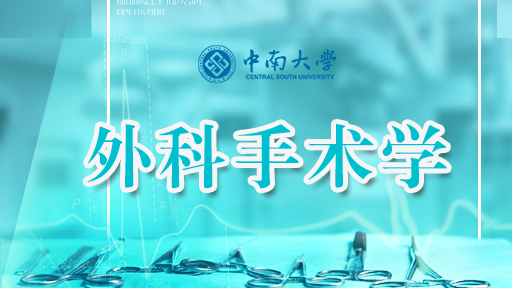
当前课程知识点:Research Methods in Tourism Studies > Week 3 Research Design I > 3.1 Key Procedures in Qualitative Approach > 3.1.1 Key procedures in qualitative approach
返回《Research Methods in Tourism Studies》慕课在线视频课程列表
返回《Research Methods in Tourism Studies》慕课在线视频列表
大家好
我是任连萍
来自澳门旅游学院
很高兴今天在这里与大家分享学习内容
因此 今天我们将讨论定性研究方法
这些是本课程的预期学习目标
到本课程结束时
大家将能够了解定性研究方法的性质和重要性
制定定性研究方案的关键程序
以及定性研究中数据收集和分析的主要方法
我们还将讨论有效性和可靠性的重要性
以及解决这两点的相关策略
在内容的前半部分
我们将重点讨论理论
在下部分
我将与大家分享一些定性研究的真实案例
第一个问题
什么是定性研究
Creswell将定性研究定义为一种探索和理解
个人或群体归因于社会或人类问题的含义的一种手段
许多其他定义都具有相似的含义
这就是定义
下一个问题
为什么我们需要进行定性研究
你们中很多人可能担心
到目前为止 定性研究没有太多机会发表在高层次期刊上
但是 我们仍然需要解决
我们仍然需要了解定性研究
在社会科学中的重要性和重要用途
因为有很多问题
比如为什么 什么 怎样
这些问题都不能用数字来回答
例如
你为什么喜欢旅行
不同的人会给出不同的答案
因为人是最复杂的生物
即使同一事件
同一产品
同一服务
人们也有不同的解读
因为他们是来自不同背景的人
他们有不同的视角和态度
而且,背景细节总是不同的
Creswell提供的这九个关键特性
也很好地解决了这个问题
内容包括自然的环境
研究者为关键工具
多种数据来源
归纳数据分析
参与者意义
紧急设计
理论视角
解释性
和整体性叙述
让我们谈谈其中的一些
以自然环境为例
定性研究者倾向于在问题的现场收集数据
也即参与者直接体验所研究问题
他们不会将个人带入人为设置场景的实验室
也通常不会直接提供工具给个人
这些通过直接与人交谈
并看到他们在语境中的行为而收集的近距离信息
是定性研究的一个主要特征
在自然环境中
研究人员会随着时间的推移面对面互动
第二个关键特征是
将研究人员作为关键工具
这意味着定性研究人员可以通过检查文档
观察行为或采访参与者来收集数据
他们可能会使用一种协议来收集数据
但研究人员才是真正收集信息的人
他们不倾向于使用或依赖
其他研究人员开发的问卷或工具
这与定量研究大不相同
多数据源
意味着定性研究人员通常会收集多种形式的数据
如访谈 观察和文档
而不是依赖单一的数据源
然后 研究人员回顾所有的数据
弄清楚它们的意义
并将其组织成可以跨越所有数据源的主题类别
然后进行归纳数据分析
这意味着定性研究者通过将数据组织成
越来越抽象的信息单元
自下而上地构建他们的模式 类别和主题
其他特征对于理解定性研究的性质也非常重要
Jennings提供了定性和定量研究方法之间的比较
如表中所示
二者主要区别在于
定性方法在本质上更具归纳性
而定量方法则更具演绎性
因此 定性研究往往结构不太严谨
更具主观性
定性数据通常由文本 图像甚至声音组成
质性研究的研究重点是主题
虽然定量研究的重点是不同的变量
试图检验变量之间的关系
如变量A如何影响变量B
因此 对于定性研究
研究对象的选择通常是非随机的
定性研究的结果往往以创新的方式呈现
而不是定量研究中更常见的表格和图表
到目前为止
希望大家能够理解社会科学中定性研究的重要性
-1.1 Research Question and Research Objectives
--1.1.1 Student interview before class
--1.1.2 The starting point: question
--1.1.3 What is a good research question?
--1.1.4 Ways to find a good research question
-1.2 Title Design
--Acticle: Leisure & Travel as Class Signifier: Distinction Practices of China's New Rich
--Discussion: Why do we research?
-1.3 Literature Retrieval Method and Literature Databases
--1.3.1 Common literature retrieval method
--1.3.2 Common literature search database
-1.4 Information Collection and Academic Journals in Tourism
--1.4.1 Academic journals in tourism research
--1.4.2 Literature collection methods and principles
-1.5 Literature Reading
--1.5.2 Overcoming obstacles in literature reading
--Week 1 quiz
--Discussion: What difficulties have you encountered in reading literature?
-2.1 Philosophical Bases of the Two Approaches
--2.1.1 Philosophical bases of the two approaches
-2.2 Differences between the Two Approaches
--2.2.1 Differences between the two approaches
--Article: Does tourist–host social contact reduce perceived cultural distance?
-2.3 Be Aware of Your Own Research Views
--2.3.1 Be aware of your own research views
--Discussion: How to choose research method?
-2.4 Research Example: Social Tourism
--2.4.1 What is social tourism?
--2.4.2 Established frameworks on social tourism
--2.4.3 Major research findings on social tourism
--2.4.4 Major findings of social tourism research
--2.4.5 Opportunities and challenges for social tourism
--Week 2 quiz
- 3.1 Key Procedures in Qualitative Approach
--3.1.1 Key procedures in qualitative approach
-3.2 Qualitative Data Collection and Analysis
--3.2.1 Key procedures and data collection methods in qualitative approach
--3.2.2 Data collection and analysis in qualitative approach
--3.2.3 Data analysis in qualitative approach
-3.3 Case Study and Content Analysis
--Discussion: Have you ever used a qualitative approach in your research?
-3.4 Using Coding and Themes in Qualitative Research
--3.4.1 Using coding and themes in qualitative research(1)
--3.4.2 Using coding and themes in qualitative research(2)
-3.5 Using Conceptual Framework in Qualitative Research
--3.5.1 Using conceptual framework in qualitative research(1)
--3.5.2 Using conceptual framework in qualitative research(2)
--Article: Tourist typology in social contact: an addition to existing theories
--Week 3 quiz
--Discussion: How to ensure the reliability and validity of qualitative study?
-4.1 Using Questionnaires in Quantitative Research
--4.1.1 Make an effective literature review and research method design
--4.1.2 Learn to write powerful findings and discussion
-4.2 Using Experiment in Quantitative Research
--4.2.4 Eye tracking experiment
-4.3 Using Mixed Method
--4.3.1 Sustainabble tourism development (1)
--4.3.2 Sustainabble tourism development (2)
--Article:Creating a scale for assessing socially sustainable tourism
--Week 4 Quiz
--Discussion: How to use quantitative methods to study tourists' reaction?
-5.1 Current Research Priorities
--5.1 1 A review of hospitality research
--5.1.2 Impact of information technology on hospitality and tourism research
-5.2 Multi-Level/ Multiple Sources of Date Collection
--5.2.1 Experimental design (1)
--5.2.2 Experimental design (2)
--5.2.3 Multi-level/multiple sources of data collection
-5.3 Mixed Method and Interdisciplinary Research
--5.3.2 Interdisciplinary research
--Article: The meanings of destination: a Q method approach
--Discussion: Can you talk about your understanding of research methods?
-5.4 Using Delphi Method in Research Design
--5.4.1 What is the Delphi method?
--5.4.3 Characteristics of the Delphi method
--5.4.4 Predicting the future of wine tourism
--Week 5 quiz
--Discussion: Philosophical basis of research methods
-6.1 Journal Publication
--6.1.1 How to publish in the top journals? (1)
--6.1.2 How to publish in the top journals? (2)
--6.1.3 How to publish in the top journals? (3)
--6.1.4 How to publish in the top journals? (4)
--Article: Analyzing the economic sustainability of tourism development: evidence from Hong Kong
-6.2 Academic Ethics
--6.2.2 Student interview after class
--Week 6 quiz
--Discussion: Academic publication and academic ethics
--Final quiz

